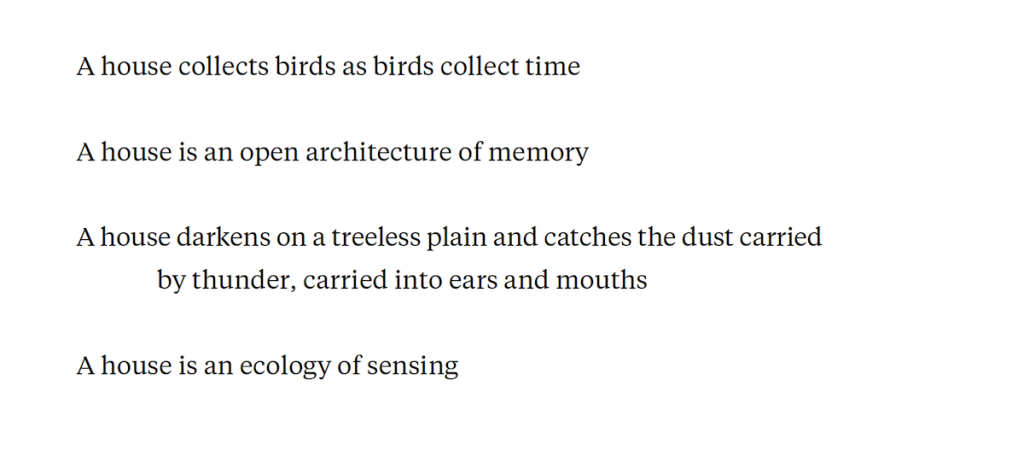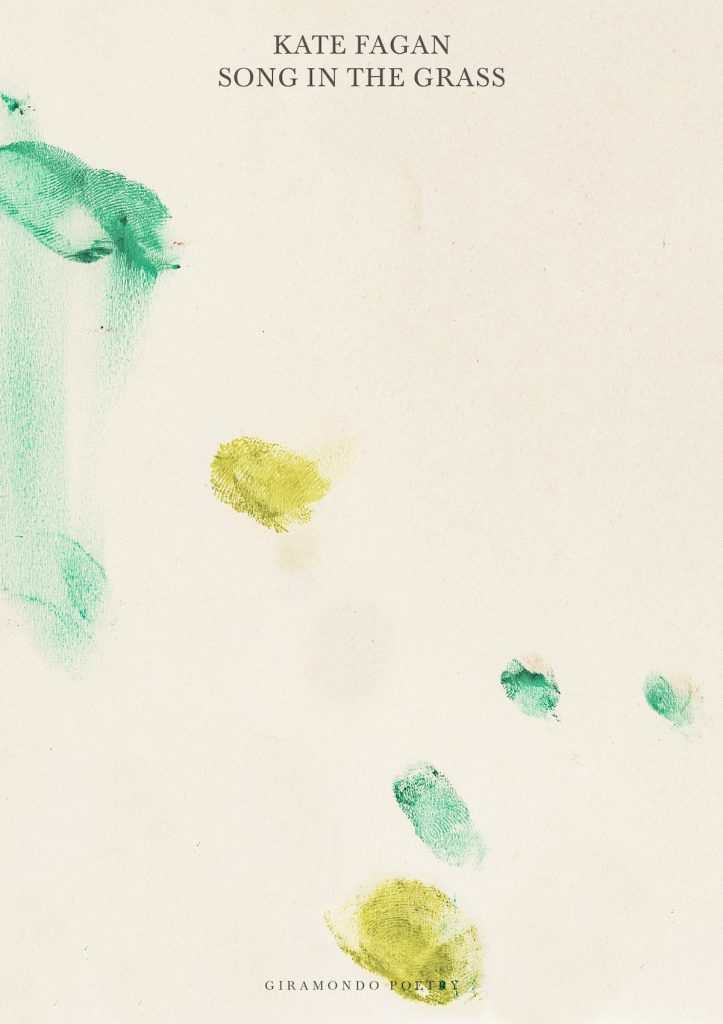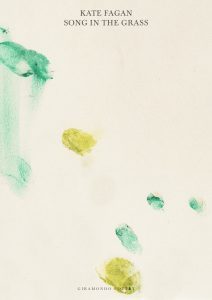Author note: Kate Fagan on Song in the Grass
Prize-winning singer, songwriter and poet Kate Fagan reflects on her new book Song in the Grass (1 June 2024), a sonically rich collection in which poetry becomes a way of sustaining love over distance, a collective music, and a compass for navigating in-common emergencies.
Song in the Grass feels to me like a record collection. It’s a handful of favourite albums, a box of lyrics, a soundtrack to living in the Blue Mountains while walking over ‘the long bridge of motherhood’, as the book might say. But it’s also an almanac of environmental care, and a love letter to poetry as an art that is most alive when shared in communities. With other players and listeners – just like music.
The shoots of this book germinated when I met Irish writer Dermot Healy. His ear was attuned precisely to the music of natural worlds, and to people’s ways of finding language in the sky and stones, or among the reeds in lakes. I couldn’t put down Healy’s A Fool’s Errand, a long meditation upon what can be illuminated by the enduring migrations of barnacle geese. It reveres birds – not as ciphers or metaphors for human experience – but as sentinels of non-human worlds, whose navigations happen in spaces and scales far beyond our ‘selves’. Talking with Healy was like hearing an ego dissolve in water, such was his profound ability to honour voices and lives other than his own, by singing in place and time.
Living in the Blue Mountains on Dharug and Gundungurra Country, I am moved daily by ecological movements and displacements. Every bird carries a musical signal about the weather, about available food, about noisy developments and clearings, about other creatures. That plain reality holds immense power for me. Land and climate justice involve many kinds of reckoning. We are surrounded by art and stories that show us how to act upon these urgent calls, if we choose to listen.
I’ve been lucky in recent years to work with a splendid group of musicians and performers for whom I’ve written lyrics as kernels for compositions, collected in Song in the Grass as ‘Notes to a Bird’. I’d love readers also to hear the music those poems inspired, and by which they are shaped. Collaboration is a jacket I always want to wear; making work in company produces stronger art, which I’ve tried to acknowledge in ‘Letters to Writers’. It releases you from your own preoccupations and habits, and revitalises language and purpose.
I’ve been asked often about my fascination with lists and archives. There is something undeniably tender about encountering the traces of people’s everyday lives in collections of salvaged detail. Good living is an antidote to bad history. Bodies are kinds of archives, full of astonishing traces of humour in response to absurdity, or love as resistance to brutality. Lists never pretend that everything can be known or accomplished; they are always unfinished, provisional. They are always referring to other things. It’s part of my creative method to store up material evidence that flocks in peripheries, with intense curiosity for what it might affirm about imagination and joy.
In reflecting upon Song in the Grass, I can’t help making new lists. The book indexes slow time, emergencies, rituals, hope, sonics, death, translation. If one poem expresses what resonates across the whole collection, it might be ‘Border House (Notes to a Bird)’ – here’s a remix:

— Kate Fagan, 6 May 2024



